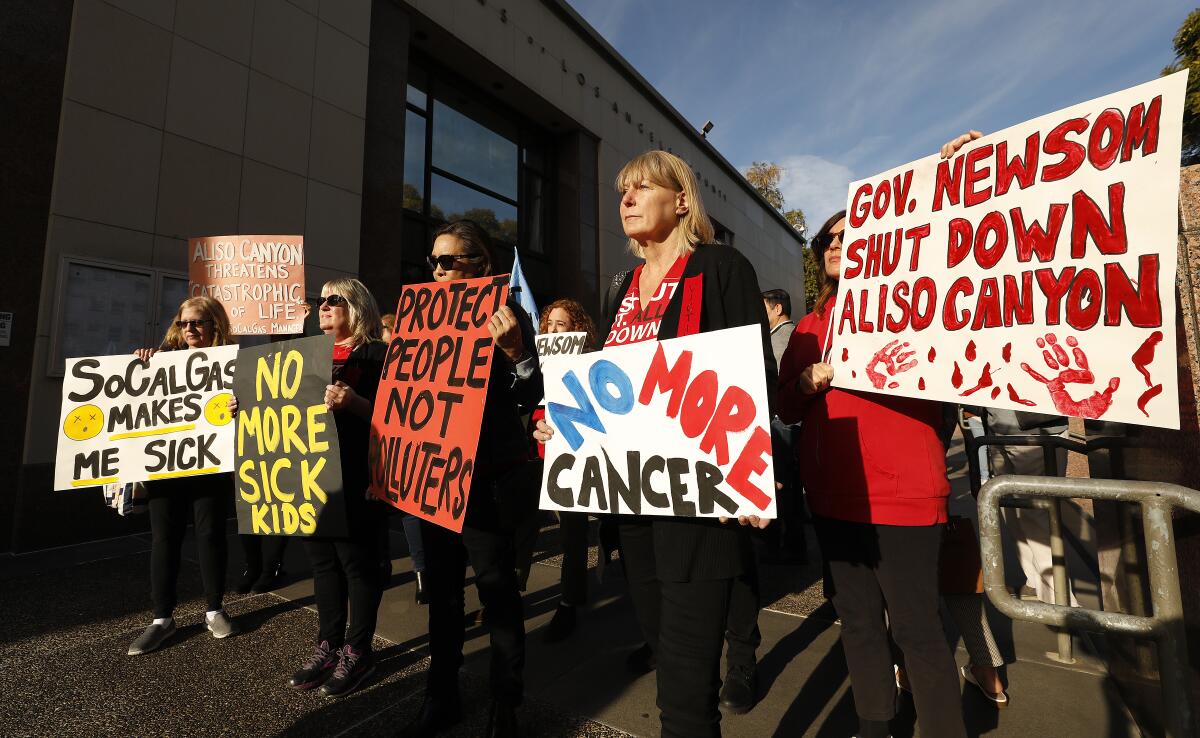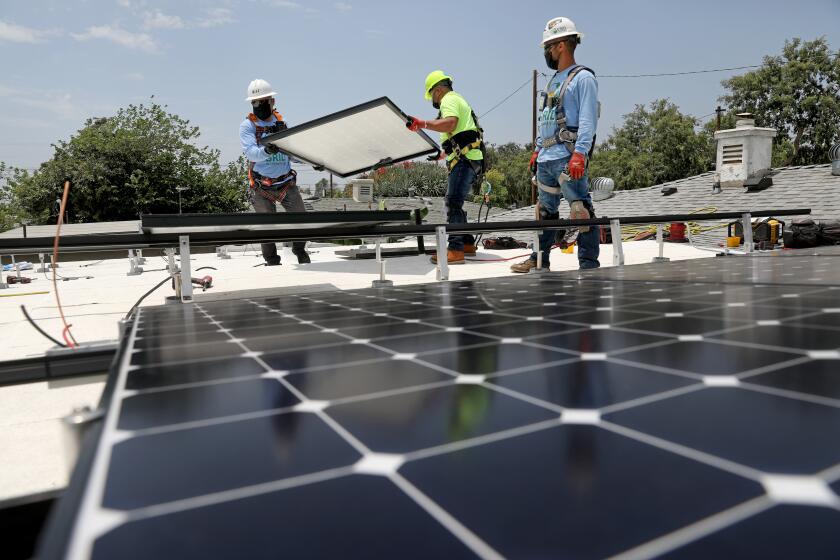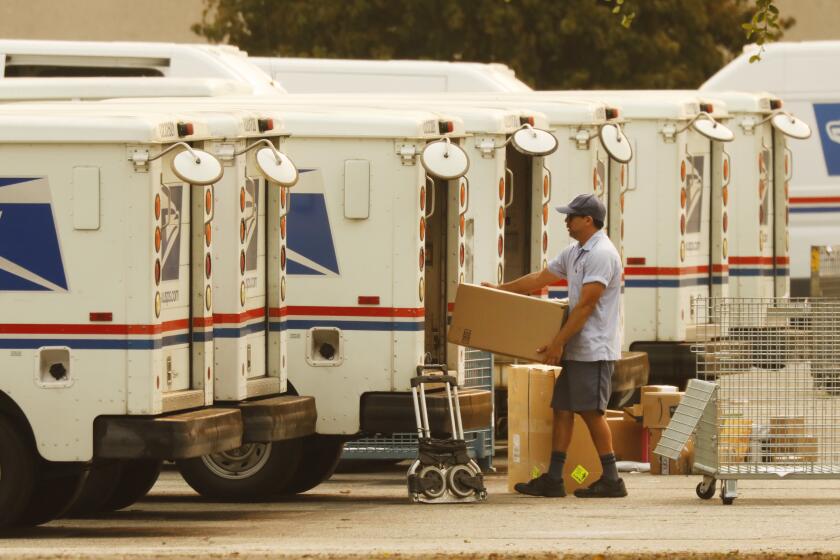Editorial: SoCalGas used customers’ money for pro-fossil-fuel advocacy, again. That’s shameful

- Share via
To slow climate change, California has to move quickly to replace gas furnaces, water heaters, stoves and dryers with electric models powered by renewable energy.
The nation’s largest natural gas utility, Southern California Gas Co., does not share that outlook. The company, which sells methane gas, a leading source of planet-warming emissions, is fighting policies that would improve energy efficiency and cut planet-warming pollution. And in some cases, it has been using the money it collects from ratepayers to do so.
That’s outrageous, and ratepayers should rejoice that SoCalGas is finally facing financial penalties for sticking them with the bill for its efforts to block climate action. State regulators want to impose a $9.8-million fine on the gas company for violating a 2018 order that it stop using customer money to fund advocacy work against stronger energy efficiency standards.
The penalty, outlined in a decision released Thursday by the California Public Utilities Commission, is a welcome sign that state regulators are getting serious about this violation, which the utility previously denied.
More than anything in state regulators’ proposal to slash rooftop solar incentives, the plan to slap a fixed monthly fee on solar customers must be scrapped.
California utility companies are allowed to spend ratepayer money to lobby for higher efficiency standards for buildings and appliances. But SoCalGas is accused of doing the exact opposite — using ratepayer money to push to delay and weaken those standards. Worse, the utility kept doing it even after its tactics were revealed and the commission ordered the company to stop in May 2018.
It’s understandable that SoCalGas would resist policies that threaten its business model, and there is nothing preventing the company from using shareholder money to do just that. Ratepayer money collected from customers, however, is strictly regulated.
The utility has been repeatedly criticized for using customer money for pro-fossil-fuel advocacy. In one instance, it helped create an astroturf group called Californians for Balanced Energy Solutions that pushed local government officials to oppose local gas bans, though it later changed course and agreed to charge that to shareholders instead.
In another case that is still pending, environmentalists and the Public Advocates Office, an independent arm of the utilities commission, want SoCalGas to be fined $255 million for allegedly using customer money to fight stronger energy efficiency codes and standards for buildings and appliances, saying the utility has been involved in a “concerted effort” to undermine efficiency goals since at least 2014. The commission has ordered the utility to return the money it misused to ratepayers, but has not issued a financial penalty.
And let’s remember that the utility is also responsible for the largest methane leak in U.S. history that began in 2015 at its Aliso Canyon storage facility.
The U.S. Postal Service wants to waste billions of dollars on a new fleet of gas-guzzling mail trucks.
Frustration with the gas company’s arrogance shines clearly through last week’s decision by administrative law judge Valerie Kao, who wrote that “SoCalGas repeatedly chose to substitute its own judgment for the Commission’s so as to avoid compliance with a Commission order,” that its “ insolence must be accorded a high degree of severity” and that its arguments for why it shouldn’t be penalized “demonstrate profound, brazen disrespect for the Commission’s authority.”
Still, the penalty amounts to less than 2% of the company’s annual net operating income, according to the decision. That’s not enough to provide a real deterrent to SoCalGas and its parent company, Sempra Energy. The fossil fuel giant reported $650 million in earnings for the first nine months of 2021. Does anyone think $10 million will cause any real pain to its shareholders?
As more comes to light about the company’s efforts to use customer money to sabotage climate action, the commission must get more aggressive with penalties. Regulators should consider, for instance, using higher penalties to help low-income households install heat pumps, induction stoves and other electric appliances the company has fought so hard to prevent.
More to Read
A cure for the common opinion
Get thought-provoking perspectives with our weekly newsletter.
You may occasionally receive promotional content from the Los Angeles Times.












